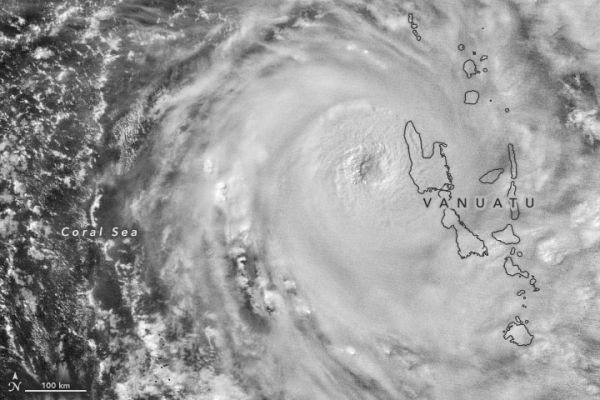On April 6, 2020, residents of Vanuatu woke up to devastating winds and heavy rains as Tropical Cyclone Harold made landfall on the Pacific island nation. By midday, Harold was a category 5 storm with sustained winds of approximately 215 kilometers (135 miles) per hour near its center, making it one of the strongest storms ever to hit the nation. Harold ripped roofs off of buildings, caused heavy flooding, and cut communication lines on the country’s largest two islands.
In the days before reaching Vanuatu, the cyclone caused several deaths as it passed south of the Solomon Islands and overthrew a ferry with almost 30 people on it. The storm is expected to reach Fiji by Wednesday.
The nighttime image above shows Harold approaching Espiritu Santo, Vanuatu’s largest island. It was acquired around 1:50 a.m. local time on April 6, 2020 (14:50 UTC on April 5, 2020) by the Visible Infrared Imaging Radiometer Suite (VIIRS) on the NASA-NOAA Suomi-NPP satellite.
Continue reading at NASA Earth Observatory
Image via NASA Earth Observatory


